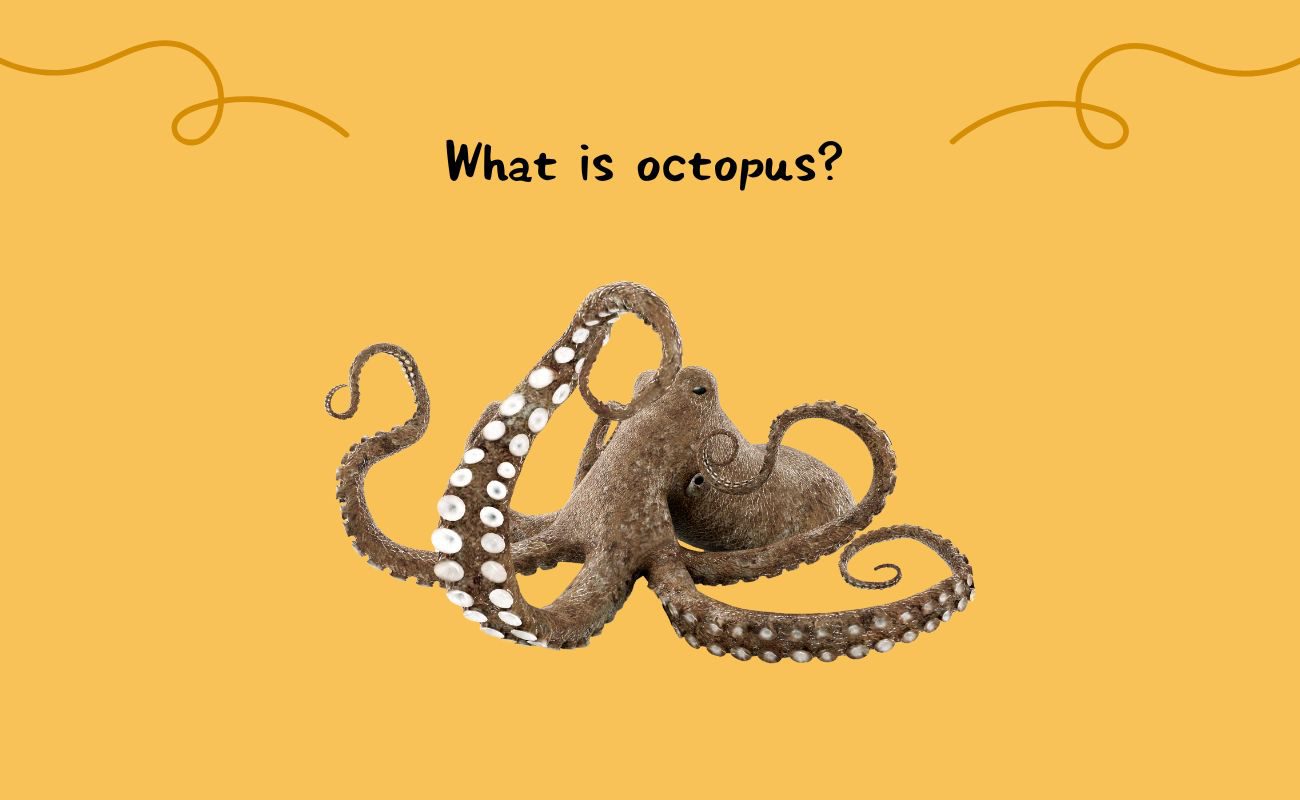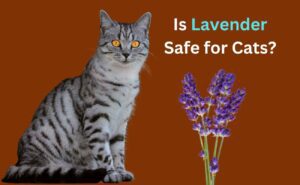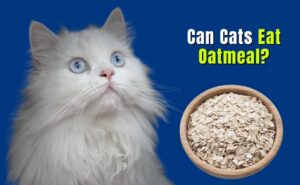What is Octopus? Can Cats Eat Octopus?
Octopus is a marine mollusk belonging to the order Octopoda, characterized by its eight tentacles and soft, gelatinous body.
It is a highly intelligent and adaptable creature found in oceans around the world, often sought after for its culinary appeal in various cuisines.
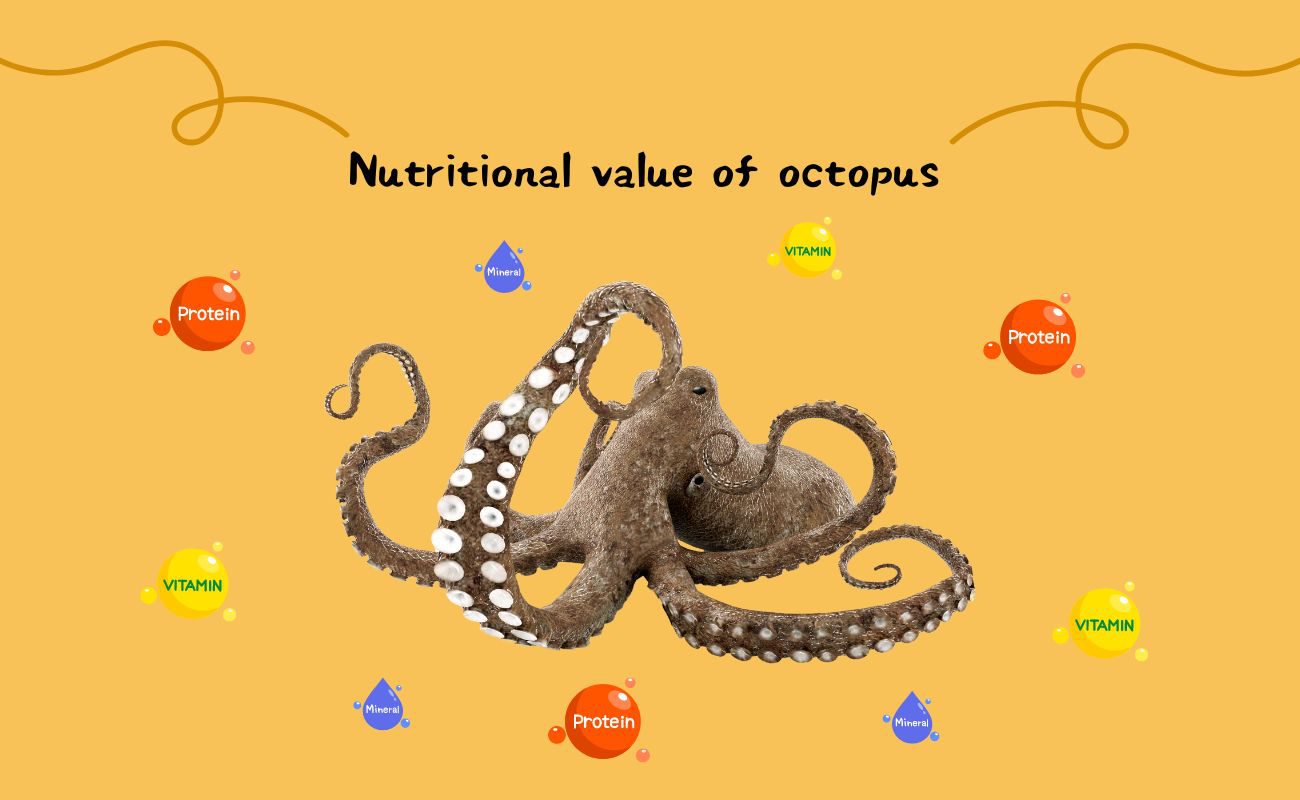
Nutritional Profile of Octopus
Octopus is a nutrient-rich source of
- Protein
- Vitamins
- Minerals
It is an excellent source of lean protein, low in fat, and contains essential nutrients such as iron, zinc, copper, and B vitamins.
Here’s a table detailing the nutritional content and calorie details of octopus per 100 grams
| Nutrient | Amount Per 100g |
|---|---|
| Calories | 82 |
| Protein | 17.6g |
| Total Fat | 0.9g |
| Saturated Fat | 0.2g |
| Monounsaturated Fat | 0.2g |
| Polyunsaturated Fat | 0.2g |
| Cholesterol | 48mg |
| Sodium | 424mg |
| Potassium | 531mg |
| Total Carbohydrates | 0g |
| Dietary Fiber | 0g |
| Sugars | 0g |
| Vitamin A | 27IU |
| Vitamin C | 4.7mg |
| Calcium | 33mg |
| Iron | 6.2mg |
| Magnesium | 68mg |
| Phosphorus | 204mg |
| Zinc | 1.1mg |
Please note that the values provided are approximate and may vary depending on factors such as cooking method and preparation.
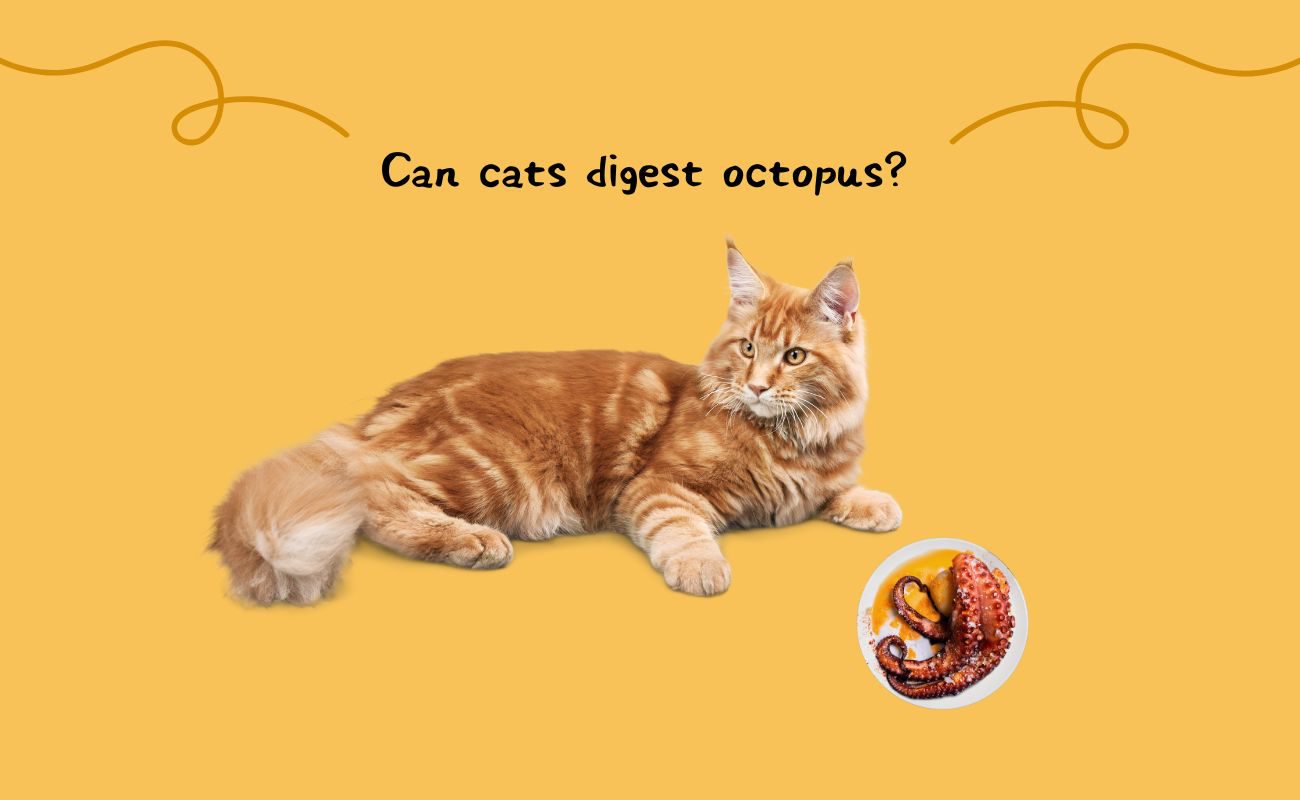
Can Cats Digest Octopus?
Cats are obligate carnivores, meaning their diets are primarily composed of animal protein.
While cats can technically digest meat, including seafood like fish, octopus may not be a natural part of their diet.
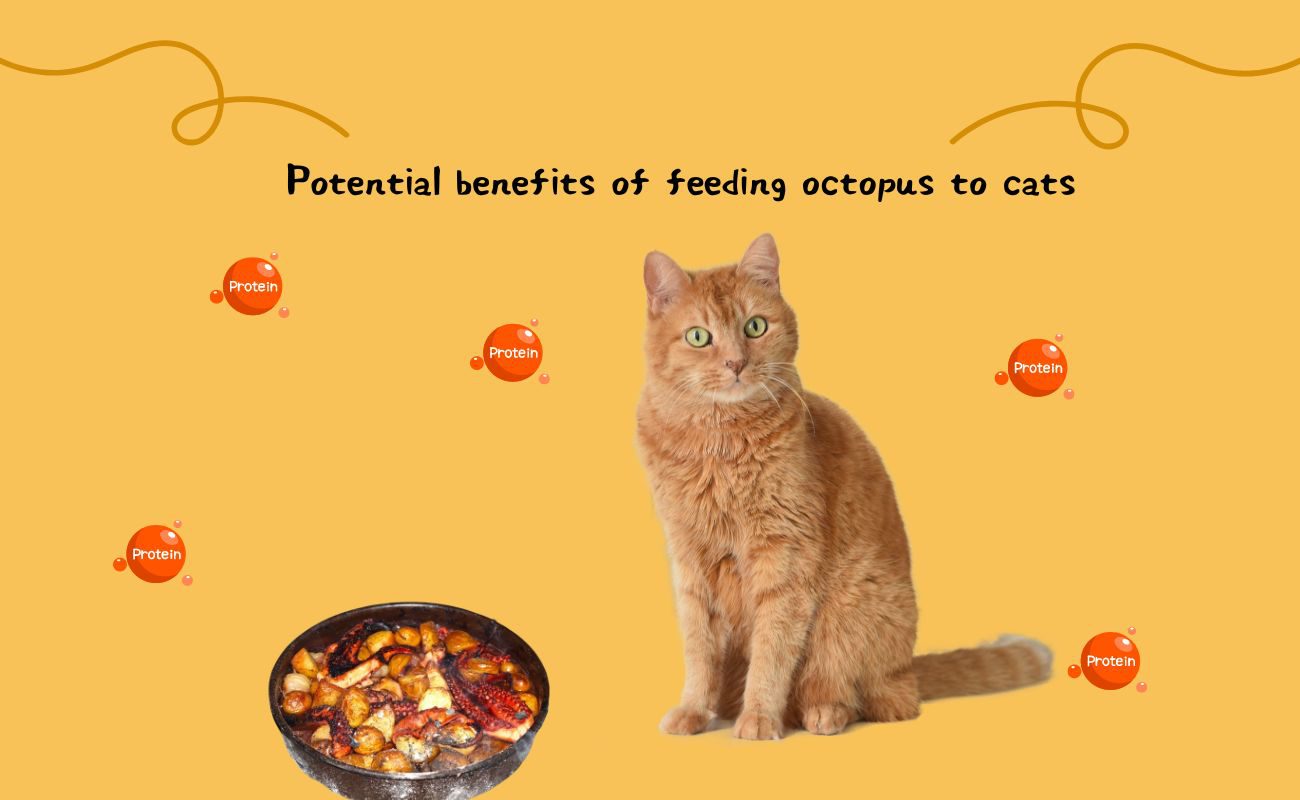
Potential Benefits of Feeding Octopus to Cats
The high protein content of octopus may support muscle development and overall health in cats.
Certain nutrients found in octopus, such as omega-3 fatty acids, may promote skin and coat health in cats.
Risks of Feeding Octopus to Cats
Despite its nutritional value, feeding octopus to cats poses potential risks.
Octopus may contain high levels of sodium, which can be harmful to cats, leading to sodium ion poisoning.
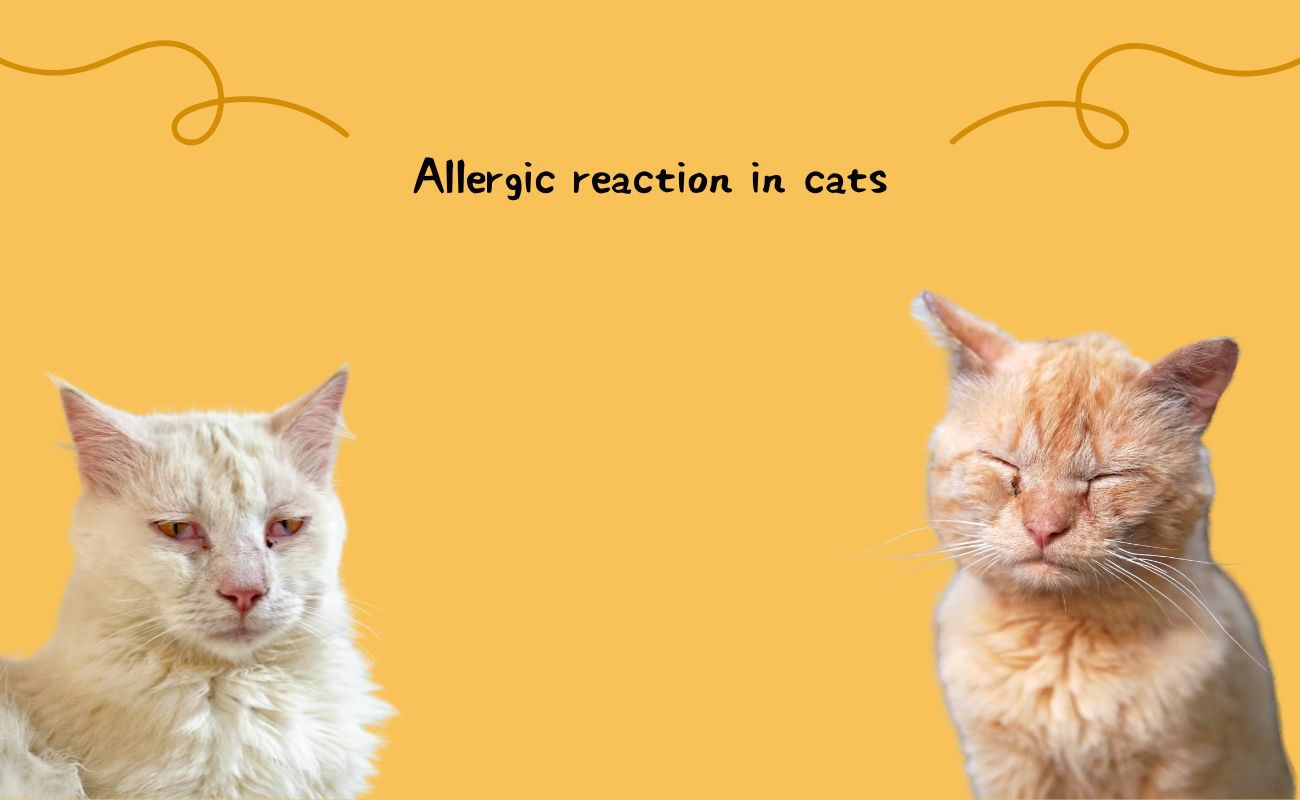
Allergic Reactions and Sensitivities in Cats
Cats can develop allergies or sensitivities to certain foods, including seafood like octopus. These allergies may develop over time or can be present from a young age.
Symptoms of allergic reactions in cats may include itching, skin rashes, gastrointestinal upset, or respiratory issues. It’s essential to monitor your cat closely after introducing octopus into their diet and seek veterinary advice if any concerning symptoms arise.
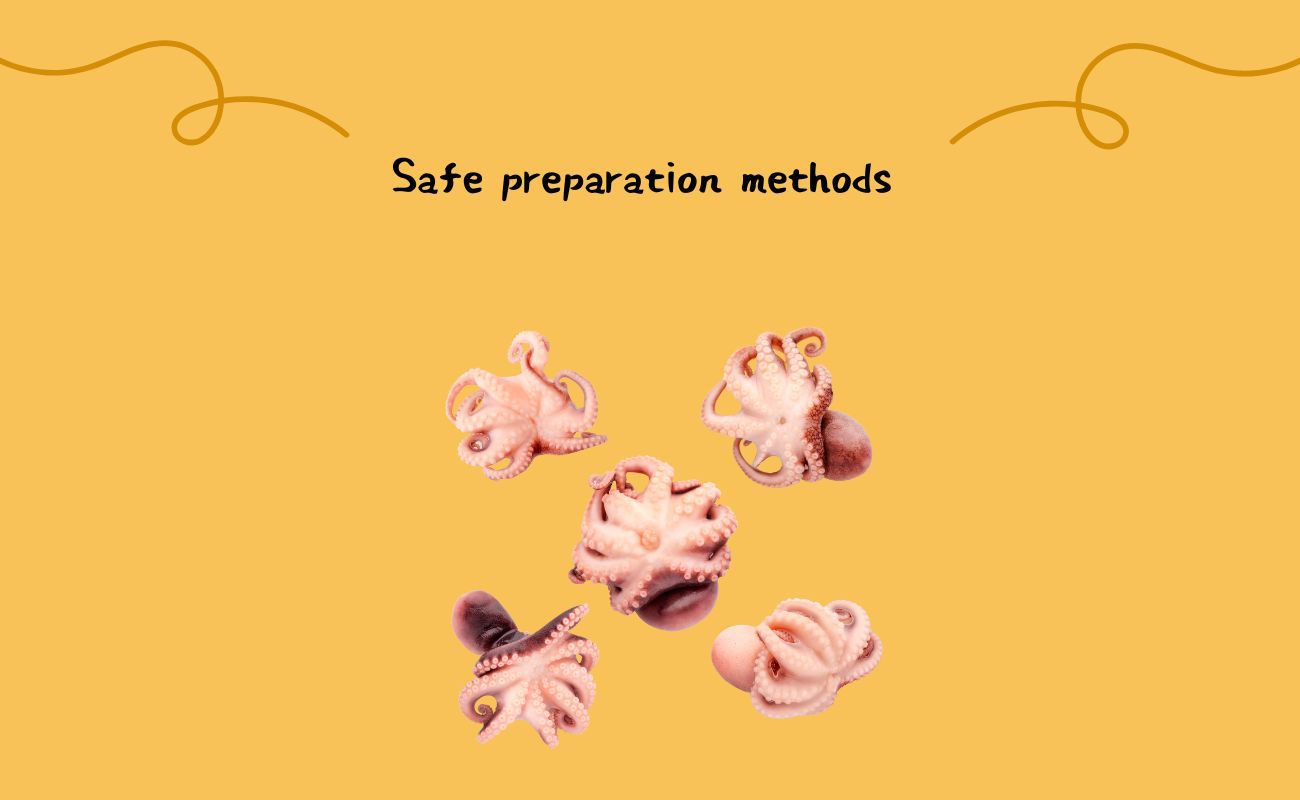
Safe Preparation and Serving Tips
When preparing an octopus for your cat, ensure it is fresh and free from any additives, seasonings, or sauces that may be harmful to cats.
Proper cooking is crucial to eliminate any potential pathogens or parasites that could pose a risk to your cat’s health. Boiling or steaming octopus until fully cooked is recommended.
Before serving octopus to your cat, be sure to remove any bones or tough parts that may present a choking hazard. Cut the octopus into small, bite-sized pieces to make it easier for your cat to consume.
It’s also essential to consider your cat’s individual preferences and dietary sensitivities. While some cats may enjoy the taste and texture of octopus, others may not find it appealing or may experience digestive upset after consumption.
As with any new food introduced into your cat’s diet, start with small portions and monitor their reaction closely. If your cat shows signs of discomfort or allergic reactions, discontinue feeding octopus and consult with your veterinarian for further guidance.
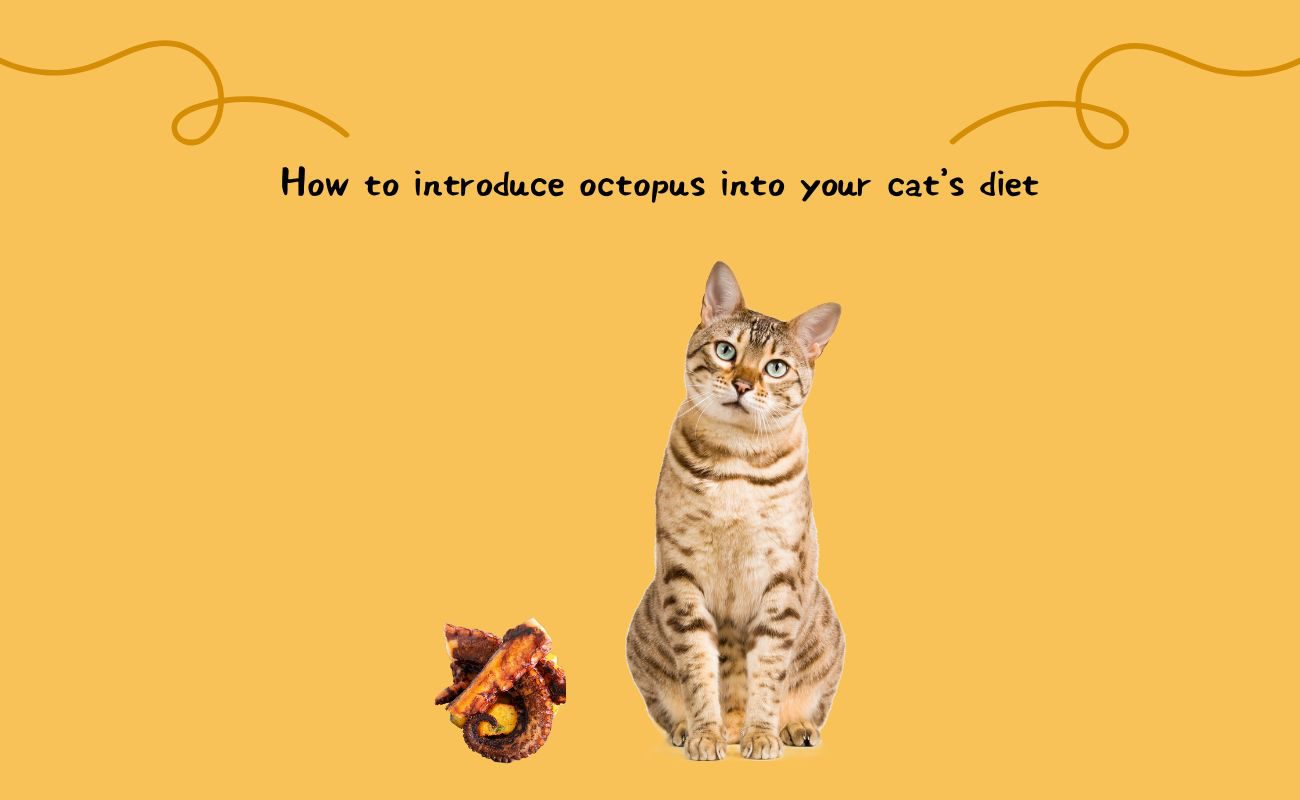
Introducing New Foods into Your Cat’s Diet
When introducing new foods to your cat’s diet, do so gradually to monitor their tolerance and prevent digestive upset.
Start with small amounts and observe your cat for any adverse reactions before increasing the portion size.
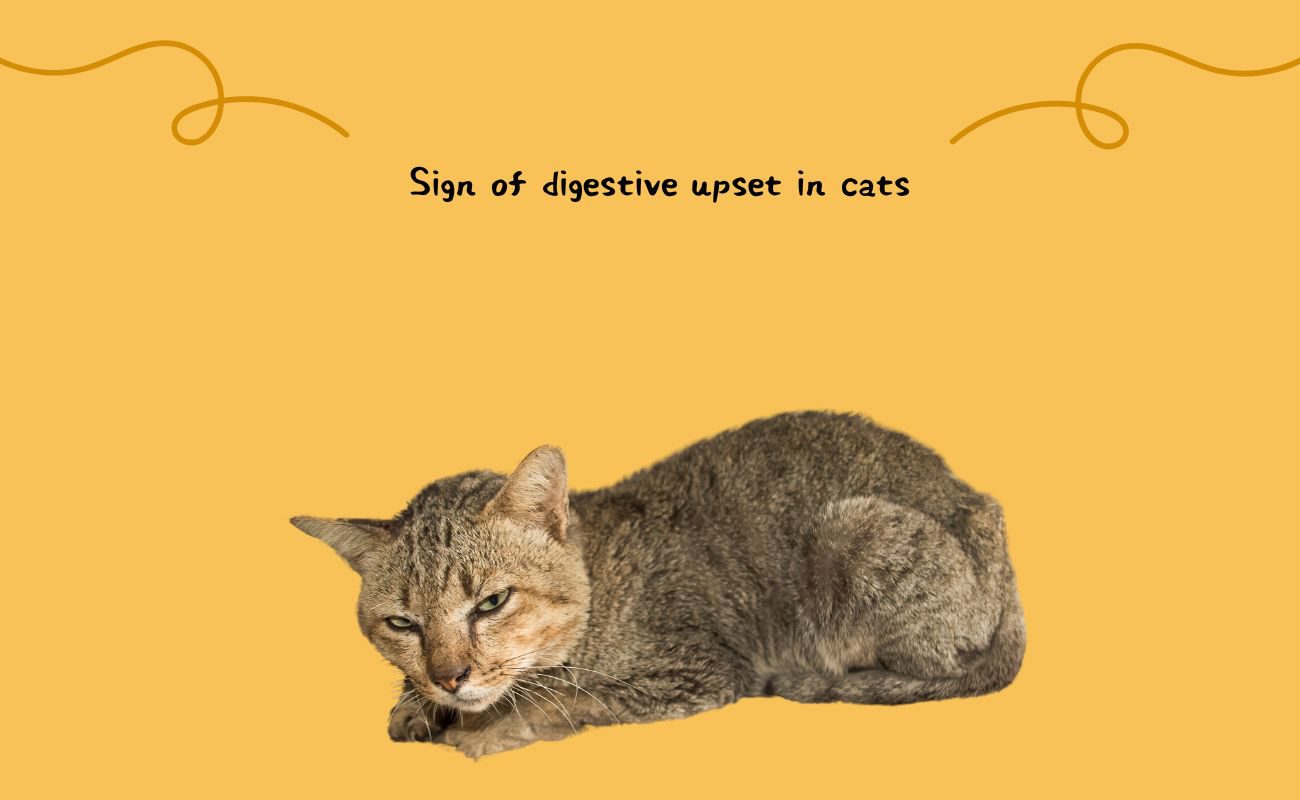
Signs of Digestive Upset in Cats
Common signs of digestive upset in dogs include
- Vomiting
- Diarrhea
- Abdominal pain
- Lethargy
- Loss of appetite
If you notice any of these symptoms after feeding octopus to your cat, discontinue the food and consult your veterinarian.
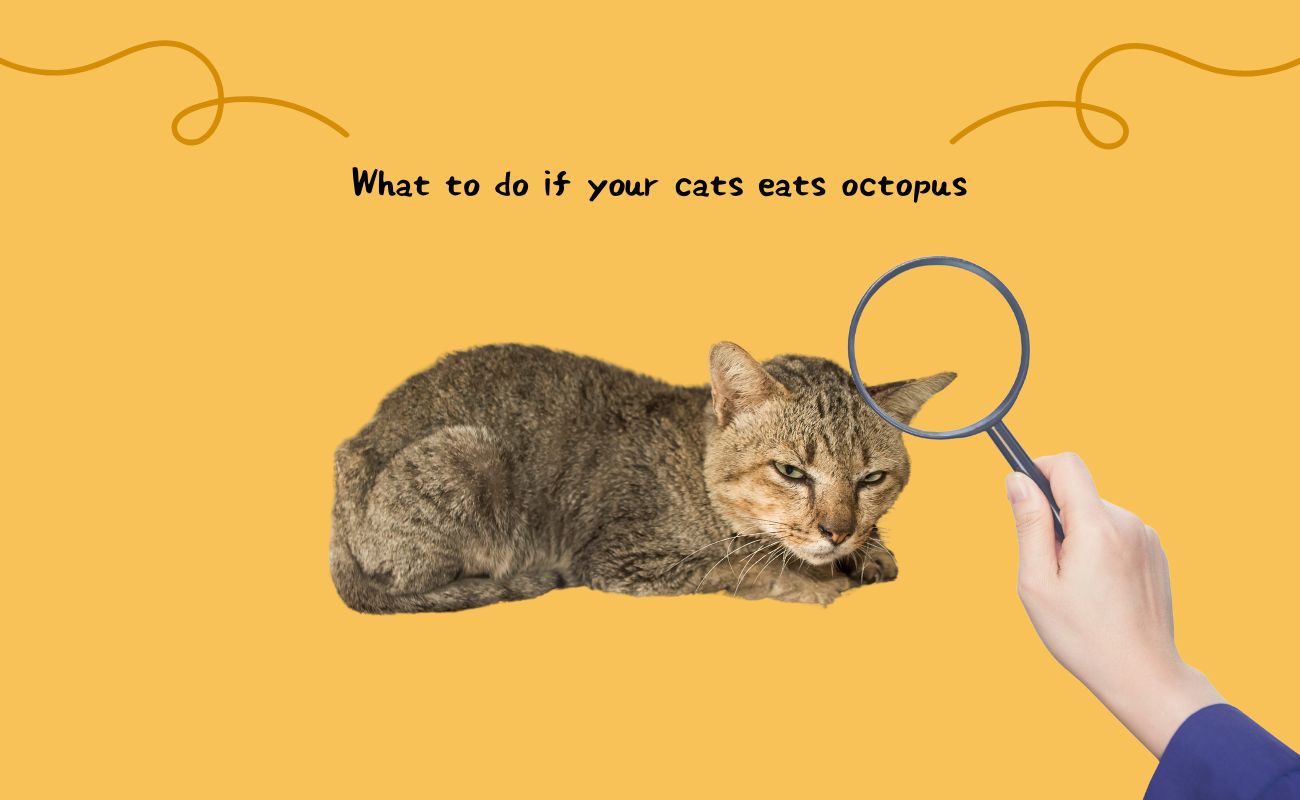
What to Do If Your Cat Eats Octopus
If your cat consumes octopus accidentally, monitor them closely for any signs of digestive upset or allergic reactions.
Offer plenty of fresh water and observe their behavior for any changes.
If you notice any concerning symptoms, seek veterinary care promptly for evaluation and treatment.
Summary: Ensuring Your Cat’s Well-Being
Can Cats Eat Octopus?
Feeding your cat octopus can be a safe option as long as it meets certain criteria
it must be fresh, cooked thoroughly, and given in small amounts as an occasional indulgence.
While octopus may offer certain nutritional benefits, it is not a necessary or essential part of a cat’s diet.
Always prioritize your cat’s health and safety by providing them with a balanced diet tailored to their specific needs.
When in doubt, consult with your veterinarian for personalized dietary recommendations and guidance. Remember, your cat’s well-being is paramount.


